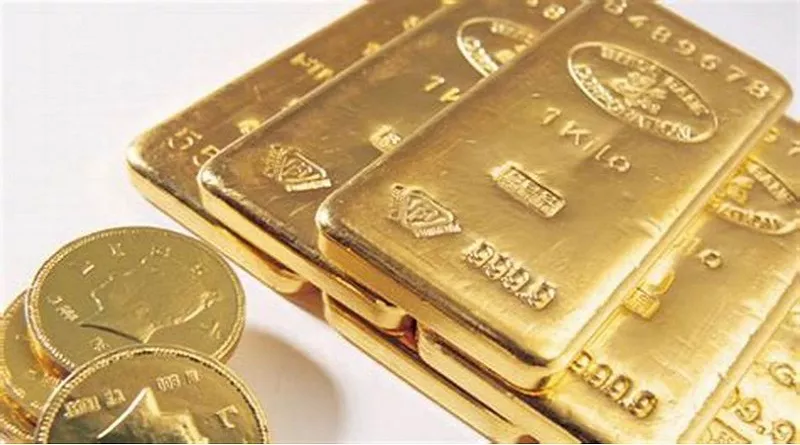Commodity futures markets offer a diverse array of investment opportunities, allowing traders to speculate on the future prices of various tangible goods. Gold futures, while a prominent player in this arena, differ in several aspects from other commodity futures. Understanding these distinctions is essential for investors looking to navigate the complexities of futures trading. In this comprehensive guide, we’ll explore the key differences between gold futures and other commodity futures, shedding light on the nuances that set them apart.
I. Understanding Gold Futures:
1. Inherent Value and Characteristics:
Gold holds a unique position among commodities due to its intrinsic value, historical significance, and use as both a precious metal and an investment. Gold futures represent agreements to buy or sell a specified amount of gold at a predetermined price on a future date. The appeal of gold futures lies in the metal’s perceived stability and its role as a hedge against economic uncertainties.
2. Global Economic Conditions and Gold:
Gold prices are influenced by global economic conditions, inflation rates, interest rates, and geopolitical events. As a result, gold futures often serve as a barometer for economic sentiment. During times of economic uncertainty or market volatility, demand for gold tends to rise, impacting the pricing dynamics of gold futures contracts.
II. Distinguishing Gold Futures from Other Commodity Futures:
1. Precious Metals vs. Agricultural Commodities:
Gold futures fall into the category of precious metals, distinguishing them from other commodity futures, such as agricultural commodities like wheat, corn, or soybeans. The factors influencing the prices of precious metals can differ significantly from those affecting agricultural commodities, leading to distinct trading patterns and market behaviors.
2. Energy Commodities and Industrial Metals:
Commodities like crude oil, natural gas, and industrial metals (e.g., copper, aluminum) form another category with different dynamics. Energy commodities are influenced by factors like geopolitical tensions, supply and demand imbalances, and changes in global energy policies. Industrial metals are often tied to economic cycles, with demand influenced by manufacturing and construction activities.
III. Market Behavior and Influencing Factors:
1. Seasonal Factors in Agricultural Commodities:
Agricultural commodities are often influenced by seasonal factors. For example, weather conditions can impact crop yields, affecting the supply and demand for agricultural futures contracts. Traders in this space must be attuned to planting and harvest seasons, weather forecasts, and other factors specific to each commodity.
2. Geopolitical Events and Energy Commodities:
Energy commodities, including crude oil, are particularly sensitive to geopolitical events. Conflicts in oil-producing regions, decisions by major oil-producing nations, and global demand fluctuations can lead to rapid and significant price movements in energy futures markets. Traders must stay informed about geopolitical developments that may impact energy supplies.
IV. Risk Profiles and Market Participants:
1. Risk and Safe-Haven Status of Gold:
One of the distinctive features of gold futures is their status as a safe-haven asset. During times of economic uncertainty or market downturns, investors often flock to gold as a store of value. This safe-haven status influences the risk profile of gold futures, making them attractive to a broader range of investors seeking stability in their portfolios.
2. Speculators and Hedgers:
Commodity futures markets attract a diverse set of participants, including speculators and hedgers. Speculators aim to profit from price movements, while hedgers use futures contracts to manage or offset the risk associated with price fluctuations in the physical commodity. The mix of participants can vary across different commodity futures markets.
V. Regulatory Framework and Exchange Dynamics:
1. Commodity Exchanges and Trading Platforms:
Commodity futures are traded on various exchanges, each with its own set of rules and regulations. Gold futures may be listed on exchanges such as the Chicago Mercantile Exchange (CME) or the Multi Commodity Exchange (MCX) in India. The exchange dynamics, trading hours, and contract specifications can differ based on the commodity and the exchange.
2. Regulatory Oversight and Compliance:
Regulatory bodies, such as the Commodity Futures Trading Commission (CFTC) in the United States, play a crucial role in overseeing commodity futures markets. They ensure fair and transparent trading practices, regulate market participants, and monitor compliance with established rules. The regulatory framework provides a level playing field for all participants.
VI. FAQs on Gold Futures and Other Commodity Futures:
Q1: How does the safe-haven status of gold impact its futures prices?
A1: The safe-haven status of gold influences its futures prices during times of economic uncertainty or market downturns. Increased demand for gold as a store of value can lead to higher futures prices. Conversely, during periods of economic stability, gold prices may experience downward pressure.
Q2: Are there specific factors that impact agricultural commodity prices?
A2: Yes, agricultural commodity prices are influenced by factors such as weather conditions, crop yields, planting and harvest seasons, and global supply and demand dynamics. Events like droughts, floods, or changes in trade policies can significantly impact the prices of agricultural commodity futures.
Q3: How do geopolitical events affect energy commodity futures, especially crude oil?
A3: Geopolitical events can have a profound impact on energy commodity futures, particularly crude oil. Conflicts in oil-producing regions, decisions by major oil-producing nations, and disruptions to global oil supplies can lead to sudden and substantial price movements in crude oil futures.
Q4: Can I trade gold futures on any commodity exchange?
A4: No, gold futures are listed on specific commodity exchanges. Common exchanges for gold futures include the Chicago Mercantile Exchange (CME) and various international exchanges. Traders should check the contract specifications and trading hours of the respective exchange where they intend to trade gold futures.
Q5: How do regulatory bodies contribute to the integrity of commodity futures markets?
A5: Regulatory bodies, such as the Commodity Futures Trading Commission (CFTC), oversee commodity futures markets to ensure fair and transparent trading practices. They regulate market participants, monitor compliance with rules, and work to maintain the integrity of the markets. Regulatory oversight helps create a secure and transparent trading environment.

